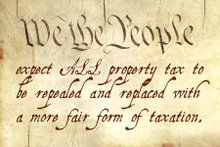UPDATE: Hoosier Access, the "Republicans-Can-Do-No-Wrong" partisan blog, blasted Matt Tully for daring to suggest that Ballard might be tightening down on his communication to the people. They offer up a podcast as proof that Ballard is only clamping down on talking to the left-spinning Tully. I tend to think the truth lies somewhere in the middle.
--Melyssa for HFFT
I don't have much time to blog this week, but I checked in with Ogden on Politics and was sickened by what I read. For the sake of time I don't have now, I'm reprinting Paul's column. I know he won't mind and I hope our readers start reading Paul's blog too.
Media
& Politics 101
During the middle 1990s, I taught a class at IUPUI
called Media & Politics. It was a class that discussed how the media
operates and how politicians and elected officials can best utilize the media in
their campaigns and while in office.
On one of the days we focused on negative stories about elected officials,
and how those stories can be handled. It is essential that the elected official
not turn off access to reporters when bad stories are printed but instead
continue to work to build a positive relationship with the media. There is no
doubt that reporters (who vote 80% or more Democrat) do have a liberal bias that
often affects their reporting, although that bias is many times subconscious in
what stories are covered and how they are presented. However, there are numerous
other biases, such as a bias for stories that have action or present conflict,
which also affect reporting and have more of an influence than the liberal
bias.
Elected officials need to treat reporters as the professionals they are,
and respect and understand the role they play in the political process. They
need to understand their deadlines and cooperate with them by providing the
information they need to complete their stories, even when those stories may not
turn out to be favorable. An elected official who is open and candid with
reporters is going to earn respect with the media and receive improved
coverage.
Having outlined my approach to handling the media, I was disappointed to
read Matthew Tully's column this morning. In the column, Tully discusses a conversation
with Mayor Ballard in which the Mayor indicates that he is going to talk less
openly to reporters, and instead follow the scripted comments of his advisors.
That's a bad strategy from a media standpoint (see above), but it's also a bad
strategy because it is those advisors whose bad advice got him in trouble in the
first place.I said it before, and I'll say it again. The Mayor needs to clean
house and give many of his advisors the boot. He needs to surround himself with
advisors who will make him the No. 1 priority and who understand his strengths
(see for example "sincerity" noted in Tully's column) and fashion a political
and media strategy to match those strengths. Closing the door to unscripted
media coverage is not effective media strategy. It is a prescription for even
worse media coverage.
Be sure to click over to Paul's blog to read the comments there. I'm glad to see he's building an audience. He's smart and his columns are good.




1 comment:
HA is so far up the ass of Daniels' they have not seen sunshine for years. You called it.
Post a Comment